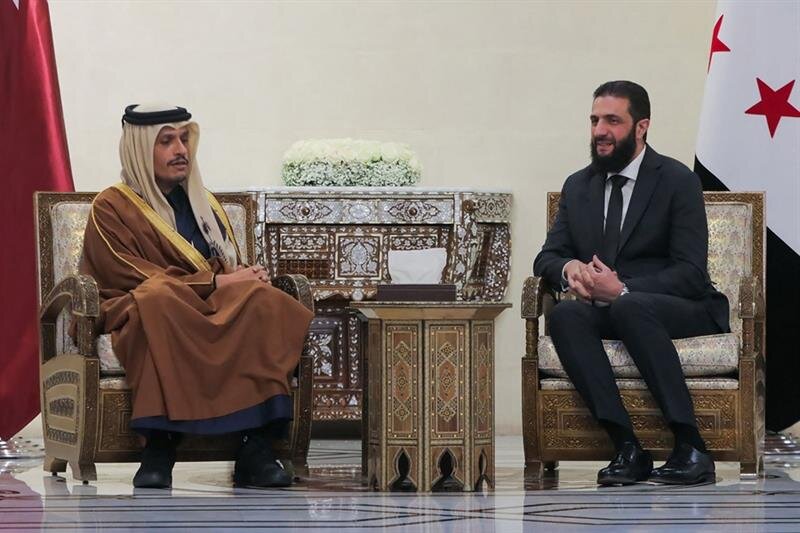Qatar PM calls on Israel to withdraw from Syria buffer zone
Sheikh Mohammed promises rehabilitation of Syria’s infrastructure

Qatar’s Prime Minister, Sheikh Mohammed bin Abdulrahman bin Jassim Al Thani, has demanded that Israel “immediately withdraw” its forces from the United Nations-established buffer zone with Syria after Israeli troops entered the area following the downfall of Syria’s ruler Bashar al-Assad.
Speaking on Thursday at a news conference in Damascus alongside de facto Syrian ruler Ahmed al-Sharaa, Sheikh Mohammed criticized Israeli moves to occupy the territory near the Golan Heights in southern Syria.
“The Israeli occupation’s seizure of the buffer zone is a reckless … act, and it must immediately withdraw,” Sheikh Mohammed said.
Israel deployed military units last month to the buffer zone, which lies along the Golan Heights and separates Syria and Israel, after al-Assad was toppled by opposition fighters led by al-Sharaa’s Hayat Tahrir al-Sham (HTS) group. The area has been an officially designated demilitarised zone as part of a 1974 UN-brokered ceasefire.
As its troops encroached on the area, Israel also launched hundreds of air strikes across Syria. It said its air attacks were part of a campaign to stop weapons from landing in the hands of “extremists”, a term it has applied to several groups in Syria, including HTS.
Al-Sharaa said at the news conference that his country is ready to welcome UN forces into the buffer zone.
Sheikh Mohammed also promised to support the new administration and the rehabilitation of Syria’s infrastructure, devastated by nearly 14 years of war.
“We will provide the necessary technical support to make the infrastructure operational again and provide support to the electricity sector,” he said, adding that Qatar “extends its hand to our Syrian brothers for future partnerships”.
He also called for sanctions on Syria to be lifted.
This month, the US Department of the Treasury issued a general licence lasting six months that authorises certain transactions with the Syrian government, including some energy sales and incidental transactions.
The action does not remove any sanctions but will ensure they “do not impede activities to meet basic human needs, including the provision of public services or humanitarian assistance”, the Treasury Department said.
The EU has agreed to meet at the end of January to discuss lifting sanctions on Syria.
Leave a Comment